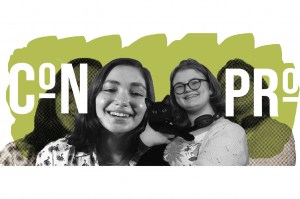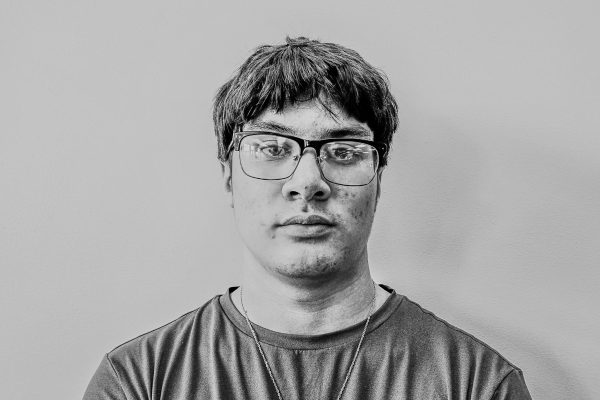Cons
May 16, 2020
In the past couple of decades, politicians and activists alike have advocated for lowering the voting age to 16 or possibly younger. Following the 2016 presidential election, voices from the left calling for the voting age to be lowered grew louder. I, contrary to what many of my progressive friends believe, do not think that the voting age should be lowered.
To lower the voting age would be to rework the entire idea of when one becomes a legal adult. Turning 18 marks adulthood for Americans; at 18 one is allowed to vote, enlist in the military, serve on a jury, and more. It would not make sense to let 16-year-olds vote when they are unable to do any of the other things that make them an adult.
More importantly, many teenagers graduate from high school around 18 and move out of their parents’ house to go to college or join the workforce. Many teenagers’ political beliefs are heavily influenced by their parents’ beliefs. According to a study done in the British Journal of Political Science, children who grow up in households where political issues are discussed often are more likely to adopt different political views when they leave home. This is because they are used to talking about politics and will continue to do so which leads them to be exposed to different viewpoints and opinions.
Teenagers living in a city or state whose citizens align themselves on the “edge” of the political spectrum may be heavily influenced by their neighbors’ political beliefs, especially if their parents tell them that these beliefs are “correct.” After leaving the city they grew up in, or simply leaving their parents’ house, an 18-year-old will make new friends, live with new people, and find a new community to engage with. These new people may or may not align themselves with the opposite side of the political spectrum than the 18-year-old does, but either way, they will expose them to different viewpoints and ideas which may shape the way they think about politics.
This presidential election cycle has reminded me why I don’t want other, fellow 16-year-old democrats and progressives to be able to vote. After Bernie Sanders dropped out and left Joe Biden as the Democratic presidential nominee, social media and classrooms alike were filled with discussion about whether Sanders’ supporters should or should not vote in November. To be fair, there were multiple conversations about this going on: to vote or not to vote in the general election, whether or not to write Sanders’ name in on the primary ballot and if his name should be written in on the ballot in November. I was truly appalled that there were so many progressive voters out there who were seriously considering not voting at all in the general election because they hated Biden so much. Because of this, I tried to talk to as many people as I could about it. I know that this only reflects what I have encountered, but based on conversations that I had with peers and from what I’ve seen on social media, the vast majority of people claiming to be unable to vote for Biden are in between the ages of 16 and 22. What’s more is that these Sanders supporters are using dangerous rhetoric when talking about the differences between Biden and Trump, or in their opinion, the lack thereof. Now, I hate to be the one that says that 16-year-olds do not know what’s best for them, but maturity increases with age, and naivety decreases.
One argument is that if the voting age was lowered, there would be a large turnout of teenage voters in elections. Sadly, only 12.5 percent of 18-year-olds participated in the 2014 midterm election. It is likely that the vast majority of the 16 and 17-year-olds with the newly gained right to vote would not use it. At the end of the day, I believe that 16-year-olds are mature enough to make their own decisions, but would be too naive and easily influenced by their parents to make well thought out political decisions that they will not regret.































